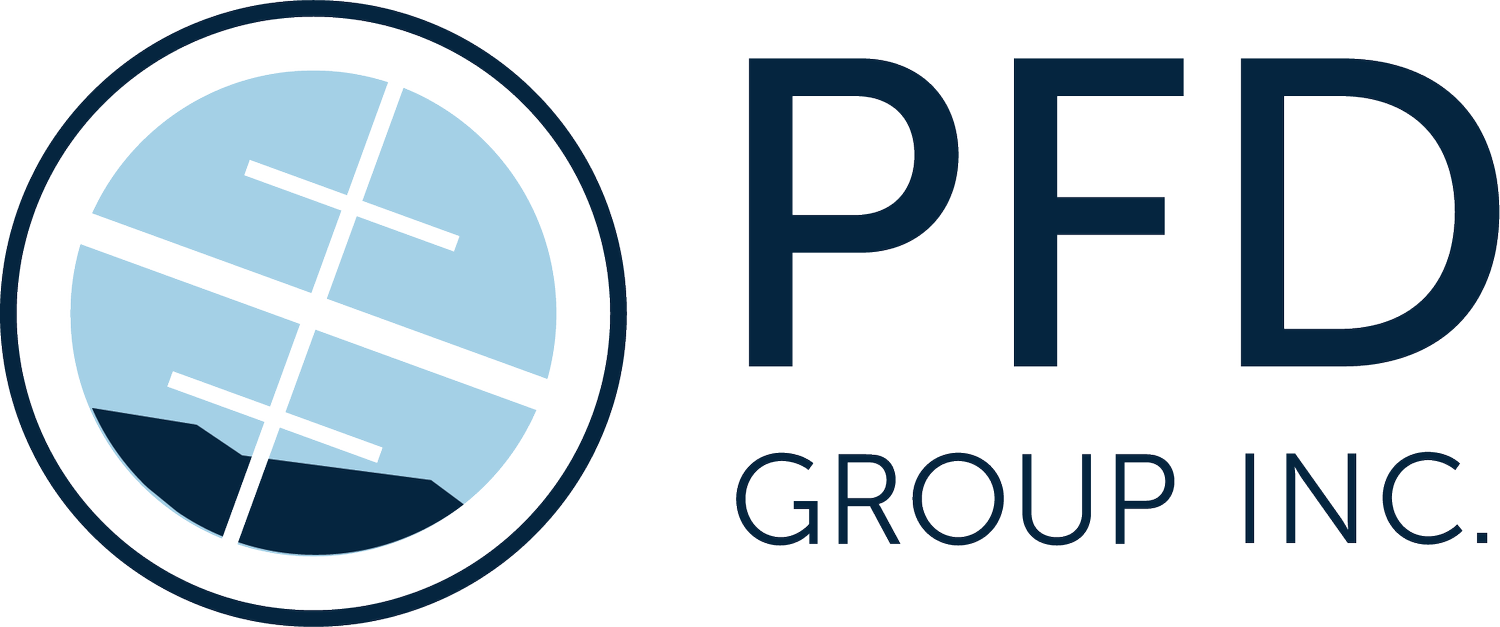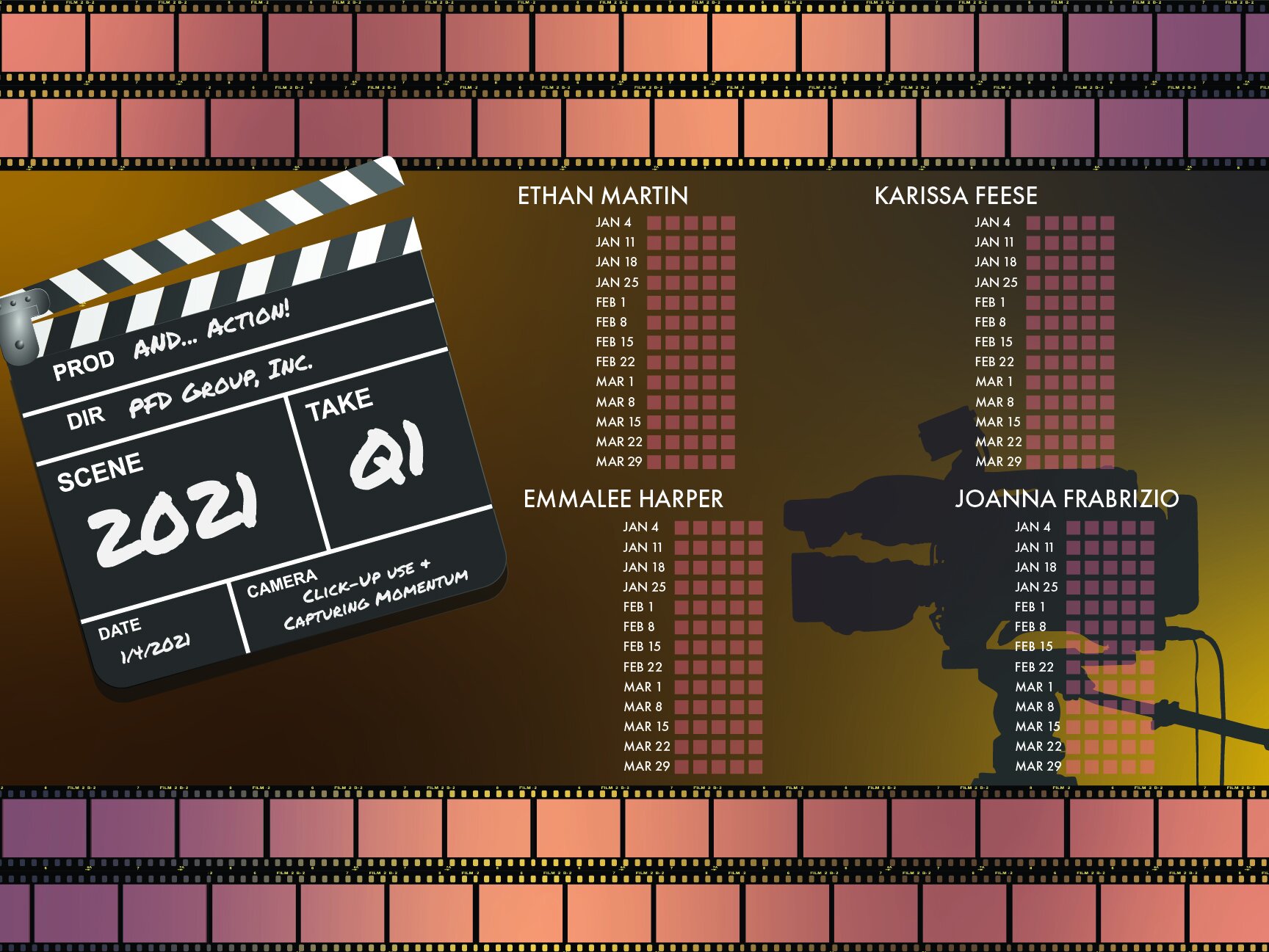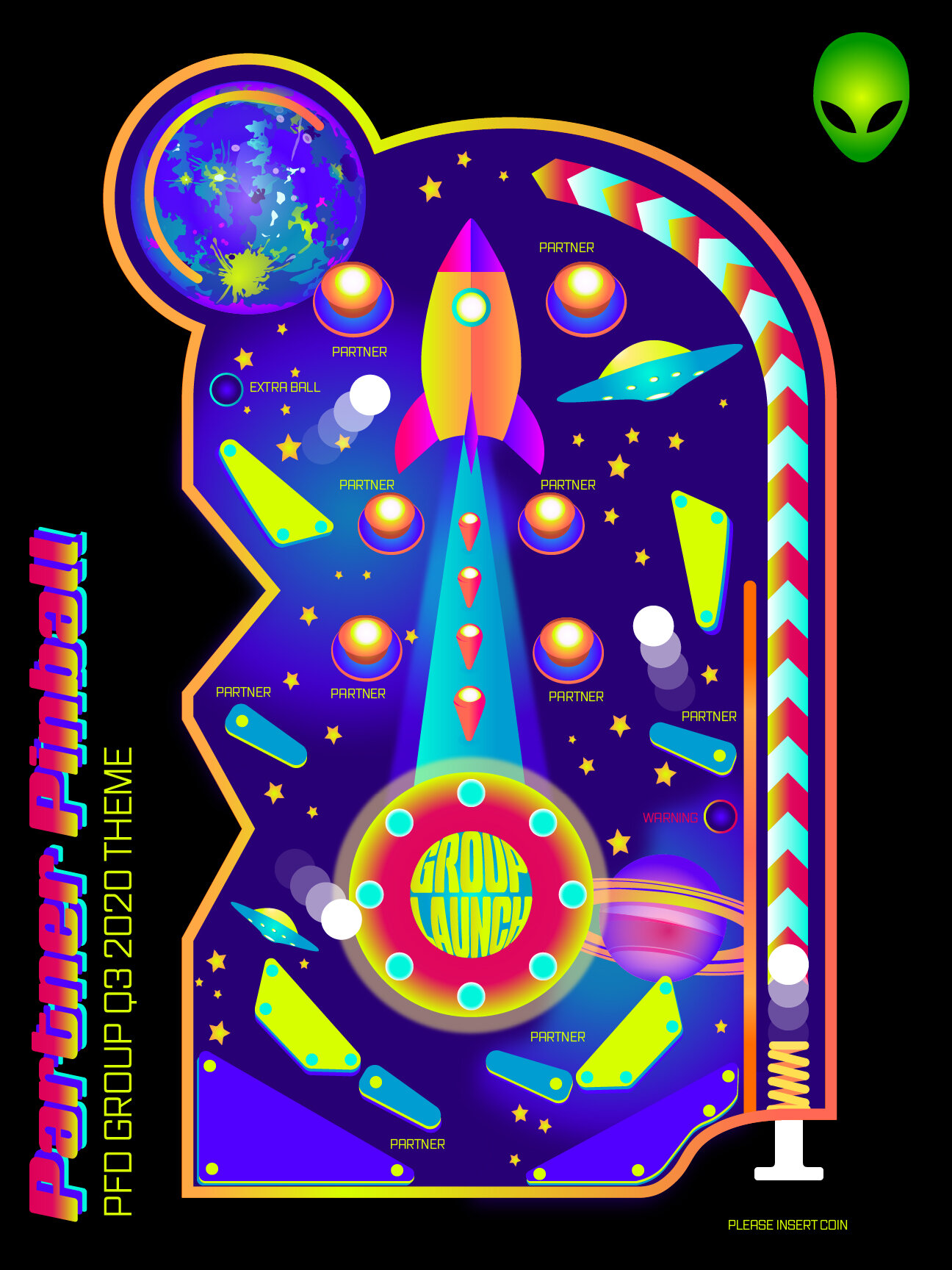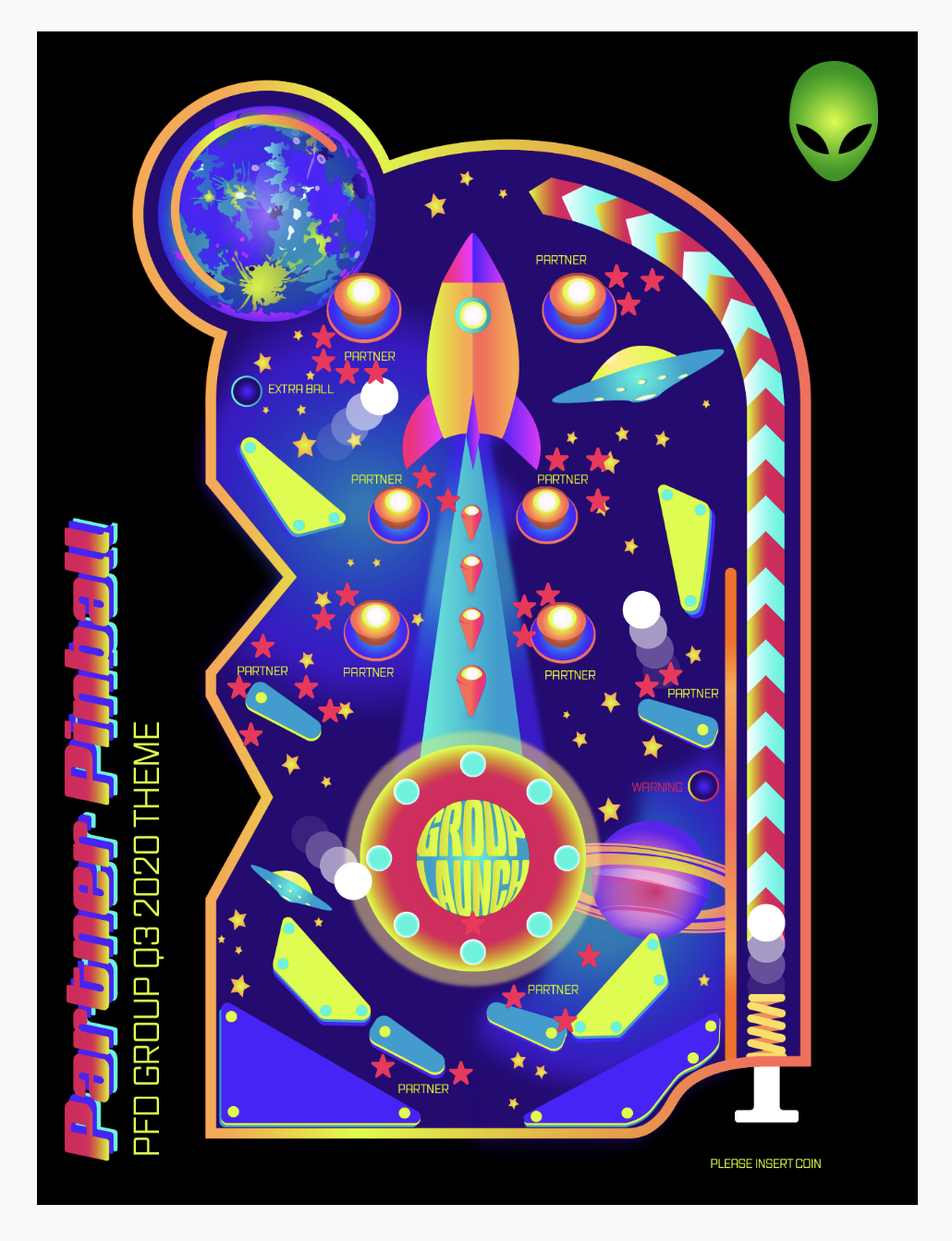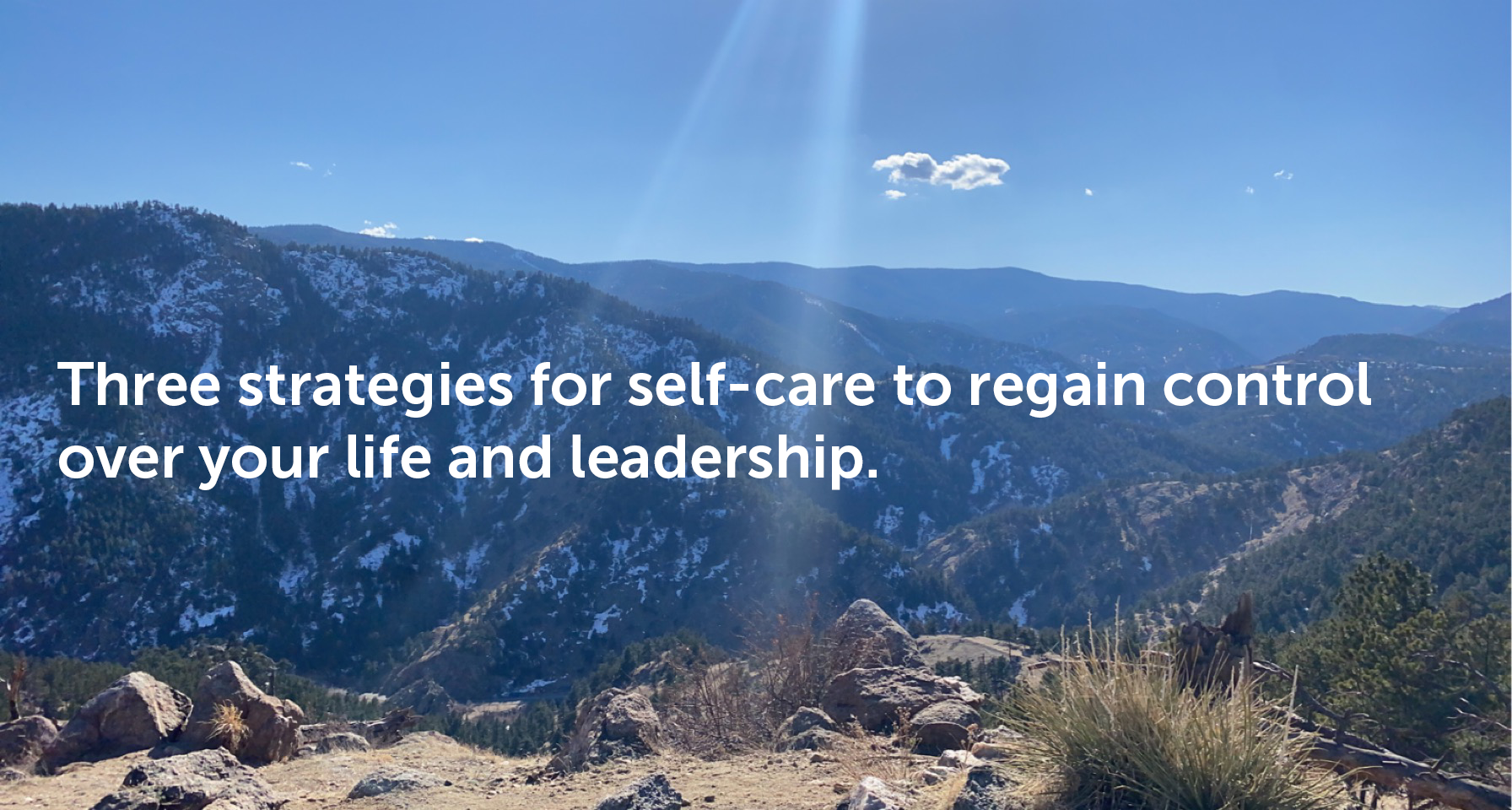As we have been working in a pandemic for more than a year, there is one thing that all the leaders I have spoken with have agreed upon: we and our teams are exhausted. I am a big believer in optimism, but I am an equally large proponent of addressing what Admiral James Stockdale calls the “brutal facts of your current reality,” and, in this moment, addressing the brutal facts means recognizing that team morale and alignment may be suffering.
One powerful way to re-inspire your team and bring energy (and fun!) back into your workplace is to announce a quarterly theme that you and your team can rally behind. Quarterly themes are generally created by gathering a representative from each department and/or your leadership team for a quick 45 minute meeting.
In the meeting, you and your team should consider where your company is at, upcoming priorities and future goals. The most important thing to remember while creating this team is that it should create a “win x4;” a win for the company, a win for customers, a win for the employees, and a win for the community. By ensuring that your theme is one that will motivate your employees and create value for customers and community, you will effectively be drawing in a crowd of individuals who will support your work.
As an example, this quarter we at PFD have decided that our quarterly theme would be “Paddle!” We wanted to capture the idea that in order to catch a great wave of change, you have to put in significant effort to ensure that the wave does not pass you by. As a company, we have several key thrusts in the works, which led us to choose a theme that will remind us to keep paddling so that we can catch a wave that will generate enormous benefits for our team and community.
Q3 2021 Theme: Paddle! The Key Thrusts have been generalized so as not to give away our strategy.
If you would like more inspiration on potential themes for our company, check out some of our past themes:
Q2 2020 Theme: “Our Finest Hour”. For this theme, we were in the height of uncertainty with the pandemic, and we were searching for empowerment in our team. We found inspiration from another period of history marked with fear and uncertainty, WWII, and specifically Winston’ Churchill’s “This Was Their Finest Hour” speech. It was because of this speech that we decided to rise to the challenge - making that quarter “Our Finest Hour” - and finding creative ways to positively impact 1,000 lives. If you would like to read more about this theme, check out this blog post here.
Q1 2021 Theme: And… Action! For this quarter, we wanted to inspire our team to be very action-oriented, so to accomplish this end, we had our team track their use and adoption of our new project-management software. By ensuring the team used the project management software, they had a clear means to track progress on their projects, thus inspiring action. There also was a celebratory component, as we also had our team members submit photos of the different things they were doing - both within work and outside of work - to commemorate all that been done during the quarter.
Q3 2020 Theme: Partner Pinball (names removed this blog post). For this theme, we wanted our team members to engage with key partners throughout the quarter to help facilitate a strong launch to a project. A star was added next to the name of each partner engaged, to make sure we kept the focus on partners present and at the forefront. The relationships we have with CEOs and other leaders are critical to our success, so we wanted to focus on treating those partners well for the duration of the quarter.
If you would like more help creating your quarterly theme, I recommend this 9-minute video: Developing a Theme for Your Team.
